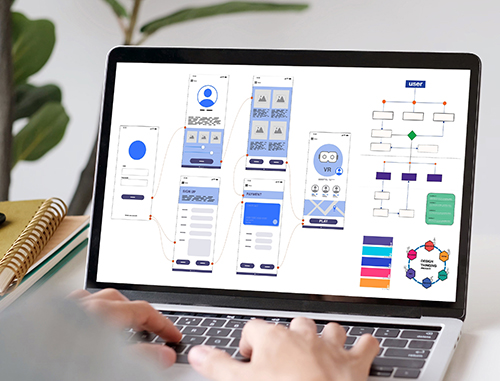Top 10 Patient Engagement Strategies
Posted on
In today’s healthcare landscape, where practices have to stand out to get people’s attention, patient engagement has become a crucial factor in ensuring the success of medical practices. The ability to actively involve patients in their healthcare journey not only improves the overall experience but also contributes to better health outcomes. In this blog post, we will explore the top 10 patient engagement strategies that can elevate your practice and foster lasting connections with your patients.
What is patient engagement, and why is it important?
Patient engagement goes beyond the traditional provider-patient relationship. It involves actively involving patients in their healthcare decisions, promoting collaboration, and enhancing communication. A highly engaged patient is more likely to adhere to treatment plans, leading to improved health outcomes. Moreover, engaged patients tend to have higher satisfaction levels, creating a positive impact on your practice’s reputation.
Tip 1: Divide patient populations into segments
Practice Builders emphasizes the importance of patient segmentation in fostering effective patient engagement. This involves categorizing individuals into groups based on shared characteristics or needs, allowing for targeted strategies that address specific concerns and preferences. Demographic segmentation, based on factors like age, gender, ethnicity, and socioeconomic status, helps tailor communication strategies.
Health condition-focused segmentation, based on specific medical conditions, ensures personalized care. Preferences as a guiding factor are also crucial in crafting a personalized patient engagement strategy. Aligning communication channels with individual preferences enhances the likelihood of patients engaging with and responding positively to the information provided.

Tip 2: Automate interaction with patients
Modern patient engagement solutions are transforming healthcare providers by incorporating automated systems that streamline routine communications, manage appointment reminders, and deliver educational content. These systems not only alleviate staff burden but also establish a consistent, personalized patient engagement framework, demonstrating a commitment to patient-centered care.
Tip 3: Begin the interaction prior to the patient visit
Initiating the patient engagement process well before the scheduled visit is a strategic approach that goes beyond conventional practices. By harnessing the capabilities of digital platforms, your practice can send pre-visit information directly to patients. This information may include essential forms, informative educational materials, and warm welcome messages.
This proactive approach serves a dual purpose: it enhances patients’ understanding of the upcoming visit, and it communicates your dedication to providing high-quality and patient-centric care. The utilization of digital platforms not only aligns with modern communication trends but also positions your practice as a leader in proactive and patient-focused healthcare.

Tip 4: Engage during the visit
Maximizing the value of face-to-face interactions with patients during visits is a crucial aspect of fostering a holistic and patient-centered healthcare experience. A key element of this approach involves actively encouraging open communication.
During patient visits, practitioners should create an environment that welcomes questions, attentively listens to patient concerns, and actively involves patients in decision-making processes related to their care. This collaborative approach not only empowers patients to take an active role in their health journey but also strengthens the provider-patient relationship. By embracing this interactive and patient-centric model of care, your practice not only ensures that each visit is meaningful but also establishes a foundation for long-term patient loyalty and satisfaction.
Tip 5: Involve patients in decision-making
Patients appreciate being active participants in their healthcare decisions. Discuss treatment options, explain the pros and cons, and consider their preferences. When patients feel heard and involved, they are more likely to adhere to prescribed treatments and take a proactive role in managing their health.

Tip 6: Keep Patients Engaged During the Aftercare
Patient engagement is a dynamic process that goes beyond a medical visit. To enhance the patient experience, it’s essential to implement post-visit communication strategies. Practice Builders recommends follow-up calls and surveys to inquire about patients’ well-being post-visit, offering educational materials and resources to gain more information.
Online patient portals can facilitate secure communication and appointment scheduling. Post-visit emails can provide a summary of the visit, prescribed treatment plans, and educational content. Wellness newsletters can offer patients insights into maintaining and improving their health, encouraging active participation in their well-being. These practices help maintain a connection with patients and promote a proactive approach to healthcare.
Tip 7: Choose different channels of information
To optimize patient engagement, it’s crucial to understand and respect the diverse communication preferences of your patient population. Practice Builders recommends a multi-channel approach, including traditional phone calls for immediate interaction, emails for detailed information, text messages for quick updates, patient portals for secure communication, and social media for community engagement.

Tip 8: Maintain long-term contact with your patients
We suggest implementing strategies to foster long-term patient engagement beyond a single visit. These include regular newsletters, health tips, and updates on new services. Newsletters keep patients informed about new medical services, staff introductions, and health news. Health tips promote a proactive approach to well-being, while updates on new services, such as telehealth services or wellness programs, highlight the practice’s commitment to evolving with healthcare trends. These actions help cultivate sustained patient engagement and position the practice as a trusted healthcare ally.
Tip 9: Track your metrics and progress
Utilize data analytics to monitor the effectiveness of your patient engagement strategies. Track metrics such as appointment adherence, patient satisfaction, and health outcomes. This data-driven approach allows you to identify areas for improvement and refine your engagement strategies for better results.
Tip 10: Personalize ads and messages
Practice Builders emphasizes using patient data to create personalized campaigns and content. We suggest segmenting patient populations based on demographics, medical conditions, and engagement preferences. Personalized messages, relevant content, and diverse communication methods are recommended. Practice Builders also emphasizes timely follow-ups and reminders to reinforce the practice’s commitment to personalized healthcare.
Conclusion
In the ever-evolving healthcare landscape, Practice Builders stands at the forefront of innovative patient engagement strategies. By embracing these top 10 strategies, your practice can not only improve patient engagement but also build a reputation for delivering exceptional care. Remember, patient engagement is a journey, and being a digital marketing agency Practice Builders is here to guide you every step of the way. Elevate your practice, enhance patient satisfaction, and foster lasting connections with these proven strategies.

 What Are the First Steps When Planning a New Websi..
What Are the First Steps When Planning a New Websi.. SEO Strategies to Rank Your Dental Practice
SEO Strategies to Rank Your Dental Practice How AI is Driving Patient Engagement and Revolutio..
How AI is Driving Patient Engagement and Revolutio..